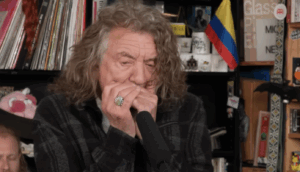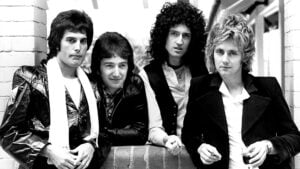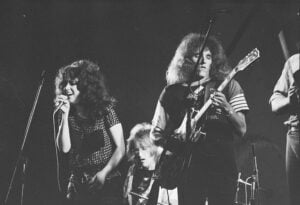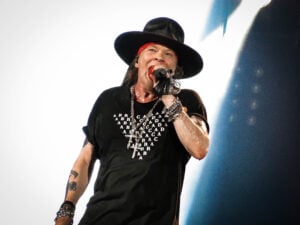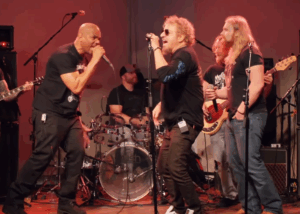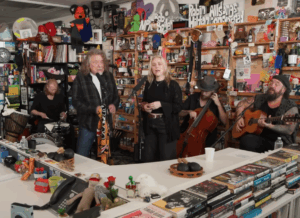Strange Jobs Classic Rock Legends Worked Before They Became Music Legends
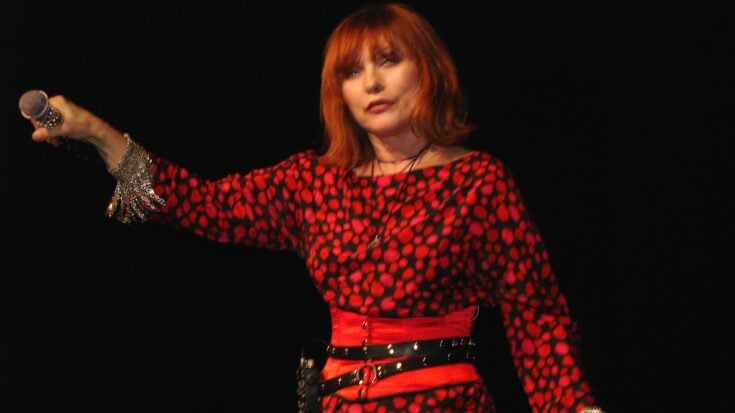
Adolphs-Dog, CC BY-SA 3.0, via Wikimedia Commons
Before these artists filled arenas and shaped rock history, many of them held jobs that were far from glamorous. Some were tough, some were unusual, and some were simply taken out of necessity. These early roles reveal a different side of the musicians the world later came to admire, showing how everyday work shaped their early lives long before they stepped into the spotlight.
1. Ozzy Osbourne – Slaughterhouse Worker
View this post on Instagram
Long before Ozzy Osbourne became known worldwide, he held a job few would expect: gutting cow carcasses in a local slaughterhouse. It was one of several labor-heavy roles he took as a young man trying to earn steady pay. The work was harsh, messy, and far from the wild stage presence he would develop later in life.
Those who worked with him recalled that Ozzy showed up and did what was required, even though the tasks were unpleasant. These early roles helped him stay afloat financially until music finally became his full-time path and the world knew him by a very different name.
2. Chris Cornell – Fish Handler
View this post on Instagram
Before Soundgarden rose to fame, Chris Cornell worked at a seafood wholesaler as a fish handler. His job involved preparing the workspace, cleaning surfaces, and disposing of fish waste. He once explained, “My job was to wipe up the slime and throw away the fish guts,” showing how far his early work was from his later life as a respected vocalist.
Cornell held the job during a difficult chapter, and the routine provided structure that helped him regain stability. In a way, the unglamorous work gave him time to rebuild his confidence before returning to music with renewed focus.
3. Steve Harris – Street Sweeper
View this post on Instagram
Iron Maiden founder Steve Harris once worked as a street sweeper after losing his job as an architectural draughtsman. He needed income to keep himself and the band going, so he took on the job despite its long hours and physical demands. It wasn’t what he imagined himself doing, but it helped him stay afloat financially.
During this time, Harris continued writing music and forming the early version of Iron Maiden. The job didn’t stop him from chasing bigger plans, and many fans now look back on this period as a reminder of how determined he was to build the band.
4. David Lee Roth – Hospital Orderly
View this post on Instagram
Before leading Van Halen, David Lee Roth worked as a surgical orderly in South Central Los Angeles. He later said, “I used to be a surgical orderly in South Central L.A. I started that when I got out of junior college in the early ’70s,” noting that the work connected to his family’s medical background. His father, several relatives, and cousins were involved in the medical field.
Roth added that the job eventually led him into outdoor medical fire force training and even time around Green Berets. These experiences were far removed from rock stages but shaped his confidence and adaptability.
5. Rod Stewart – Cemetery Employee
View this post on Instagram
Rod Stewart’s early work at London’s Highgate Cemetery sparked years of stories about him being a gravedigger. In reality, he later clarified that he didn’t dig graves but marked out burial plots with string. In his autobiography he wrote, “You learn a lot about yourself, doing physical work,” adding that he discovered he didn’t enjoy physical labor much at all.
The job, while simple, gave Stewart steady income before music became stable. He often spoke about how these early responsibilities helped him understand discipline, even if the tasks themselves were not something he wanted to do long-term.
6. Mick Jagger – Psychiatric Hospital Porter
View this post on Instagram
Before the Rolling Stones took off, Mick Jagger worked as a porter at Bexley psychiatric hospital. At the time, he was living with Keith Richards and Brian Jones while also attending the London School of Economics. He took the job to cover living costs while trying to figure out his long-term plans, which at that point included possible careers in journalism or politics.
The job didn’t last long because the band soon gained momentum. Still, the experience exposed Jagger to environments far different from the stage, giving him early insight into people and behavior during a formative time in his life.
7. Joe Strummer – Gravedigger
View this post on Instagram
Unlike Rod Stewart, Joe Strummer actually worked as a gravedigger at St Woolos Cemetery in Wales, three years before forming The Clash. His roommate at the time later said Strummer struggled with the physical demands. “He wasn’t actually strong enough to dig graves and eventually he got the sack when he was found asleep in a grave,” he recalled.
The job was difficult, and Strummer didn’t last long, but it became a memorable part of his early life. It also added to the stories that surrounded him later as a musician who came from modest, unpredictable beginnings.
8. David Bowie – Butcher Delivery Boy
View this post on Instagram
At age 13, David Bowie worked as a delivery boy for a butcher to pay for his saxophone and lessons with Ronnie Ross. Bowie was determined to improve musically, and this job gave him the money he needed to keep learning. It was simple work, but it helped him stay committed to his goal of becoming a performer.
Years later, Bowie and Ross crossed paths again when Ross played saxophone on Lou Reed’s 1972 album Transformer, which Bowie produced. The small job that supported Bowie’s early lessons quietly connected to a milestone moment in his career.
9. Debbie Harry – Playboy Bunny
View this post on Instagram
When Debbie Harry moved to New York in the late 1960s, she needed steady income, so she worked as a Playboy Bunny at the New Jersey club. She later said she saw it as part of show business and a practical way to support herself. “Well, I like to dress up, so it didn’t really bother me,” she said in a Radio 4 interview.
Harry added that the club treated the workers well and considered them performers in their own right. The job helped her stay financially stable while she followed her artistic interests and eventually formed Blondie.
10. Keith Richards – Tennis Ball Boy
View this post on Instagram
Keith Richards grew up around tennis because his parents played often. He spent weekends acting as their ball boy and later earned money doing the same job at a local club. He once said the experience taught him the “ins and outs of the game,” even though music would eventually become his focus.
The work was simple but gave Richards early exposure to responsibility. It also added discipline to his routine, something he carried with him when he later began playing guitar more seriously and joining the early version of the Rolling Stones.
11. Tom Morello – Exotic Dancer
View this post on Instagram
Before Rage Against the Machine, Tom Morello faced tough times after graduating from Harvard and moving to Hollywood. He struggled to find work and said he was “literally starving,” so he took on several low-paying jobs, including work as an exotic dancer. “Brick House was my jam!” he wrote, explaining that he performed at bachelorette parties and went down to his boxer shorts.
Morello noted he only did what was necessary to survive and earn income during those early months. He has joked about the job in later interviews, grateful that it happened long before the age of smartphones and online videos.





